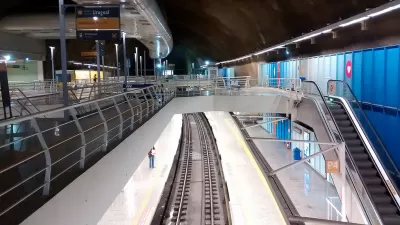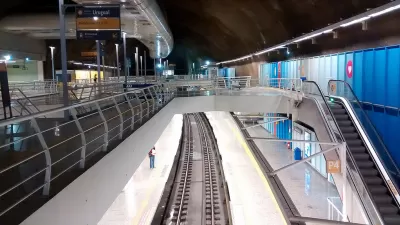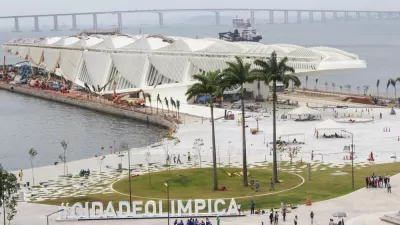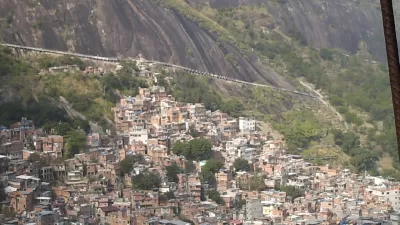Beset by delays and financial problems, the state of Rio is having trouble completing a new subway line before the Olympics start a month from now. The time crunch may cut into time for testing, presaging problems in August.

Line 4 was touted as Rio's most important Olympic infrastructure project, designed to transport passengers between Ipanema beach and the Olympic Park and Village.
Without the subway, athletes and fans will need to traverse the city's (internationally unpresentable) hills and shantytowns by road, and traffic jams will be inevitable. According to an article The Associated Press, transportation experts are beginning to worry that the system might not be fully tested before the opening ceremony of the Summer Olympics on August 5.
Rio officials insist on their ability to complete the tests. "'Every hour counts,' Rodrigo Vieira, Rio de Janeiro's transportation head, told The Associated Press, insisting the job would be finished. 'We are working around the clock, 24/7 with 1,000 workers in each station.'"
On top of Brazil's presidential scandals, there's plenty to worry about going into the Games. Late last month, Rio state's acting governor declared a state of financial disaster. To make matters worse, other new infrastructure projects have encountered power outages, structural problems, and premature damage.
FULL STORY: Rio's new subway line is running out of time before Olympics

Planetizen Federal Action Tracker
A weekly monitor of how Trump’s orders and actions are impacting planners and planning in America.

Restaurant Patios Were a Pandemic Win — Why Were They so Hard to Keep?
Social distancing requirements and changes in travel patterns prompted cities to pilot new uses for street and sidewalk space. Then it got complicated.

Maui's Vacation Rental Debate Turns Ugly
Verbal attacks, misinformation campaigns and fistfights plague a high-stakes debate to convert thousands of vacation rentals into long-term housing.

In California Battle of Housing vs. Environment, Housing Just Won
A new state law significantly limits the power of CEQA, an environmental review law that served as a powerful tool for blocking new development.

Boulder Eliminates Parking Minimums Citywide
Officials estimate the cost of building a single underground parking space at up to $100,000.

Orange County, Florida Adopts Largest US “Sprawl Repair” Code
The ‘Orange Code’ seeks to rectify decades of sprawl-inducing, car-oriented development.
Urban Design for Planners 1: Software Tools
This six-course series explores essential urban design concepts using open source software and equips planners with the tools they need to participate fully in the urban design process.
Planning for Universal Design
Learn the tools for implementing Universal Design in planning regulations.
Heyer Gruel & Associates PA
JM Goldson LLC
Custer County Colorado
City of Camden Redevelopment Agency
City of Astoria
Transportation Research & Education Center (TREC) at Portland State University
Jefferson Parish Government
Camden Redevelopment Agency
City of Claremont





























